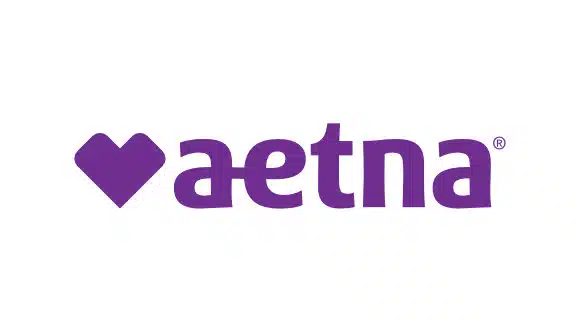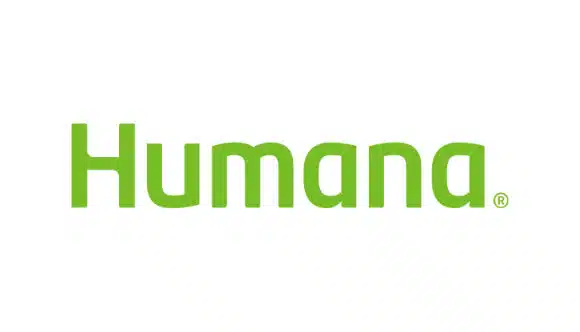
Apply for Medicare: A Critical Step for Health Coverage
Timely enrollment in Medicare is essential to secure your coverage promptly and avoid unnecessary penalties. Have questions about how to apply for Medicare? We have the answers.
If you enroll in Medicare Part A (hospital insurance) at 65 without qualifying for premium-free Part A based on your or your spouse’s employment history, enrolling late may lead to penalties. These are added to your Part A premium. The penalty amount varies depending on the duration of delay in enrolling after your initial eligibility.
For Medicare Part B, if you’re late enrolling outside of your Initial Enrollment Period (IEP) without having other adequate coverage, your monthly premium could see an increment. The increase is proportionate to the length of time you were eligible but didn’t enroll.
This guide will delve into the specifics of when and how to enroll in Medicare and the documentation required. Regardless of your timing, completing a Medicare application is necessary (details included below).
Medicare vs. Social Security: Understanding the Difference
It’s crucial to recognize that the processes for applying for Medicare and Social Security benefits are distinct. While Social Security retirement benefits can start as early as age 62, the standard qualifying age for Medicare is 65.
If you delay Social Security benefits, you should enroll in Medicare Part A and Part B before turning 65. On the contrary, if you begin receiving Social Security retirement benefits before 65, enrollment in Medicare happens automatically.
Individuals under 65 may qualify for Medicare due to disability for a continuous period of 24 months. Those with specific conditions like ALS (Lou Gehrig’s Disease) or ESRD (End Stage Renal Disease) that require dialysis or a transplant are also eligible for Medicare.
Applying for Medicare might seem complex, but you’re not alone. Our team of senior health experts is here to support you in understanding and navigating your Medicare application. Our services are complimentary, so feel free to Contact Us or call us directly at 877-255-6273.
When is the Right Time to Apply for Medicare?
Knowing when to apply for Medicare is your first essential step. Here are some common scenarios to consider whether it’s time for you to enroll in Medicare:
- You’re approaching your 65th birthday.
- You’re over 65 and planning to retire or lose your current insurance.
- You’re under 65 and wondering if you’re eligible for Medicare.
Let’s break down each of these scenarios in detail.
Enrolling in Medicare at Age 65
Eligibility for Medicare begins at 65, known as your Medicare Initial Enrollment Period (IEP). This period, lasting seven months, starts three months before, includes the month of, and extends three months after your 65th birthday.
Enrolling during this initial period is vital to prevent penalties and ensure the coverage you choose takes effect without any waiting periods or exclusions for pre-existing conditions.
While automatic enrollment is a common misconception, it only applies if you’re already receiving Social Security retirement benefits or qualify for disability before 65. If you’re nearing 65 and not receiving Social Security benefits, it’s time to start your Medicare application.
Post-65 Medicare Application Considerations
Applying for Medicare after you turn 65? Our team at My Senior Health Plan will need to understand your situation, including:
- Your current employment status.
- Whether you’ve already retired.
- If you have existing creditable insurance.
- Whether you’ve enrolled in Medicare Part B already.
- Understanding your unique situation helps us inform you about Medicare costs, potential penalties, and suitable health insurance plans.
Medicare options and premiums vary for each individual applying post-65. Premiums can be automatically deducted, paid through Easy Pay, or billed by mail.
Delaying Part B due to employment might make you eligible for a Special Enrollment Period to sign up for Medicare Part B after retirement and losing group insurance.
Others might miss their Initial Enrollment Period and need to sign up during the General Enrollment Period (detailed below).
Medicare General Enrollment Period: Your Backup Plan
The Medicare GEP is for those who’ve missed the IEP and don’t qualify for a Special Enrollment Period. Enrollment in Medicare Part B is possible during this period.
Under-65 Medicare Enrollment
Those under 65 on Social Security disability for 24 months are automatically enrolled in Medicare. Welcome packages and Medicare cards are mailed out accordingly. Individuals with ALS or ESRD may apply for Medicare benefits and have various options.
Applying for Medicare: Multiple Convenient Methods – Online, In-Person, Phone
Applying for Medicare is flexible. You can apply online, in person, or by phone. While online applications are quick, in-person applications might be your preference. Phone applications can be convenient but might involve wait times and mailing forms. For in-person applications, find your nearest Social Security office online. To apply by phone, call 1-800-772-1213 or 1-877-772-5772 for Railroad Retirement Benefits.
Online Application:
Applying for Medicare benefits online is quick and efficient, typically taking 10-20 minutes. To start your online application, visit this link for step-by-step enrollment guidance.
In-Person Application:
Some Social Security offices may be closed or have limited services. To apply for Medicare in person, locate the nearest office using this link. Enter your zip code for a list of nearby offices with their contact information and directions.
Phone Application:
Applying by phone is another option, though it may involve delays if forms are needed. Be aware of potential wait times. Call 1-800-772-1213 to apply, or 1-800-325-0778 for TTY users. Railroad Retirement Benefit recipients should call 1-877-772-5772. Clearly state your intention to apply only for Medicare.
Post-Application Process:
Once you’ve applied for Medicare Parts A and B, you’ll typically receive your Medicare card within 1-3 months if automatically enrolled or 2-4 weeks post-approval if applied after turning 65.
Keep in mind that Original Medicare doesn’t cover all out-of-pocket costs for medical services and doesn’t include self-administered prescription drugs. To offset these expenses, consider enrolling in a Medicare Supplement Plan and a Medicare Part D prescription drug plan, or opt for a Medicare Advantage Plan (Part C).
Essential Documents for Medicare Application
When preparing your Medicare application, you’ll need to gather some key documents and information:
- Your birth certificate.
- A valid driver’s license or state I.D. card.
- Evidence of U.S. citizenship.
If you’re already enrolled in Medicare Part A and just need to sign up for Part B, be ready with:
- Your Social Security card.
- Current employment verification, typically a W-2 form, if applicable.
- Current insurance documentation, like an official letter from your employer with your name and insurance coverage dates.
- Any relevant military documents.
In cases where you’ve postponed your Part B enrollment, the Social Security Administration will require you to fill out additional forms, which vary based on your reasons for delaying:
- Form 40B: This is used to apply exclusively for Medicare Part B. You can upload this form for online applications or mail it to the Social Security office.
- Form L564: If your Part B enrollment was delayed due to employer-provided creditable insurance, your employer must complete this form. It can be submitted online or sent by mail.
Preparing these documents beforehand ensures a streamlined and successful Medicare application process. Always verify the specific documents needed for your situation and feel free to reach out to Senior HealthCare Solutions or the Social Security office for assistance.
Next Steps After Your Medicare Application
Kudos on completing your Medicare application and securing Parts A and B! This marks a significant initial step in arranging your health insurance.
If your Medicare enrollment was automatic, expect to receive your Medicare card around 1-3 months before you turn 65. For those who applied post-65, the Medicare card typically arrives within 2-4 weeks following the approval of your application.
It’s important to note that Original Medicare, encompassing Part A and Part B, doesn’t fully cover all expenses related to hospital and physician services, including outpatient treatments and durable medical equipment. Moreover, Original Medicare doesn’t include coverage for self-administered prescription medications.
To mitigate expenses not covered by Medicare, you have the option to join a Medicare Supplement Plan, also known as Medigap, and a Medicare Part D plan for prescription drug coverage. Alternatively, opting for a Medicare Advantage Plan (Part C) could be another viable route to consider.
Need Assistance Applying for Medicare?
Navigating through over 25 top-rated Medicare insurance providers and various plan options can be daunting. Our senior health experts at My Senior Health Plan are here to guide you in comparing Medicare plans to find what suits you best. Contact us or call us directly at (877)-255-6273 for personalized service tailored to your unique Medicare needs. Remember, there’s no universal Medicare plan that fits everyone.
How to Apply for Medicare – Frequently Asked Questions
FAQ #1: Do you have to re-apply for Medicare every year?
A: There is no need to reapply each year for Original Medicare (Part A and Part B). After your initial enrollment in Original Medicare, your coverage typically remains in effect year after year, unless you opt out. Similarly, your Medicare Part D prescription drug plan is renewed automatically every year. However, it’s crucial to remember that plan benefits might evolve. Therefore, it’s advisable to assess your plan annually during the Annual Election Period (AEP).
FAQ #2: When should you sign up for Medicare?
A: Your optimal window for Medicare enrollment is the Initial Enrollment Period (IEP), spanning seven months around your 65th birthday. This period encompasses three months before, the month of, and three months after your birthday month. Enrolling during your IEP guarantees that you secure the necessary coverage without facing late enrollment fees. Additionally, if you are receiving Social Security benefits, you might be automatically enrolled in both Medicare Part A and Part B as you reach 65.
FAQ#3: Is Medicare available to those with pre-existing conditions?
A: Yes, eligibility for Medicare is not affected by pre-existing conditions. Medicare ensures coverage without imposing additional premiums based on existing health issues. Whether you qualify for Medicare upon reaching 65 or through a disability, you have the right to enroll in Original Medicare (Part A and Part B), independent of your current health condition. Furthermore, with Medicare Advantage (Part C) and Prescription Drug (Part D) plans, your coverage is guaranteed without any extra charges due to pre-existing conditions.
FAQ #4: Do Medicare premiums vary annually?
A: Yes, Medicare premiums may vary from year to year. This variation is due to several influencing factors, including shifts in healthcare costs, inflation rates, and legislative policies. Additionally, individuals with higher incomes might incur an Income-Related Monthly Adjustment Amount (IRMAA) on top of their regular premiums for both Part B and Part D. This extra charge is determined by your modified adjusted gross income, and the income thresholds for IRMAA are subject to annual changes.
FAQ #5: When can I expect to receive my Original Medicare ID Card?
A: Upon enrolling in Original Medicare (Part A and Part B), your Medicare card is typically sent to you through the mail within several weeks of your enrollment completion. For those who are automatically enrolled in Medicare – a common occurrence for individuals turning 65 or those who have received Social Security disability benefits for 24 months – you can expect your Medicare card to arrive around 3 months prior to the commencement of your coverage.





